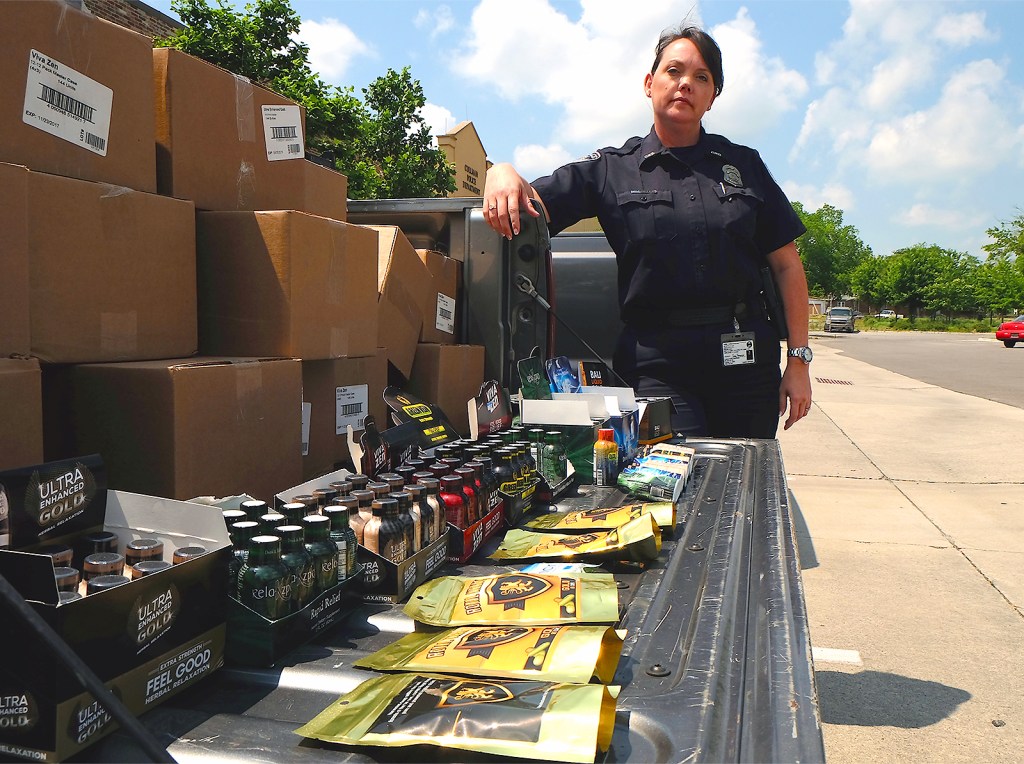Police confiscate kratom supplements from Alabama stores
Published 10:42 am Friday, May 13, 2016

- Cullman, Alabama city patrol officer Cindy Rohrscheib attends a truckload of kratom, confiscated Wednesday by city narcotics officers after the state banned the substance earlier this week.
CULLMAN, Ala. — After a state law was enacted banning the sale of kratom, police officers in a northern Alabama city confiscated the substance from local convenience stores Wednesday.
By the end of the day, officers had recovered a truckload of kratom products with an estimated retail value of $20,000.
Trending
Originally proposed as Senate Bill 226, the law signed by Alabama Governor Robert Bentley not only makes kratom illegal throughout the state, but it also names kratom as a Schedule I controlled substance for its high potential for abuse and its lack of current acceptable medical use in the United States.
Cullman Police Chief Kenny Culpepper said storeowners were given a copy of the law during the confiscation, and that no arrests were made.
Kratom, a plant-based substance once considered an alternative to more addictive substances, is sold under various brand names and typically is available in a 2-ounce bottle in liquid form, or in the form of pills and tablets. It is derived from a tree that grows in Southeast Asia. The leaves of the tree are used to make the product.
“It mimics a painkiller. Sometimes it’s in a pill form or leafy, but mostly what we’ve seen is liquid,” said Chris Thomason with the police department’s narcotics unit. “We’ve seen a lot of problems with it. It causes the user to be lethargic or even zombie-like if they use too much. We’ve been told by a user that it can be like heroin.”
Nationwide, the drug has gained a surge of popularity with consumers being able to buy it at local convenience stores, smoke shops and via Internet sites. Kratom bars have also opened in states like New York and North Carolina, offering consumers a number of brewed versions.
The drug has also been reported to cause hallucinations, paranoia, nausea and heavy sweating and has been sought by consumers as an alternative to opiates that studies have found to be just as addictive as heroin in many cases though it offers a lower overdose risk.
Trending
In recent drug busts by authorities, Thomason said the liquid has been found among suspects, although it was not illegal at the time.
“Some of the store owners knew about the change in the law and had shipped back their stock,” Thomason said. “The makers of this kind of product always find a new way to get something similar on the market. It’s a big concern for people driving and using it.”
Sheriff Matt Gentry said the Cullman County Sheriff’s Office is reaching out to store owners throughout the county to ensure rapid compliance with the new law.
“We’re taking a proactive approach to working with business owners by informing them of the new law, and then working with them to be sure they comply with it,” he said Wednesday.
Palmer writes for the Cullman, Alabama Times.





